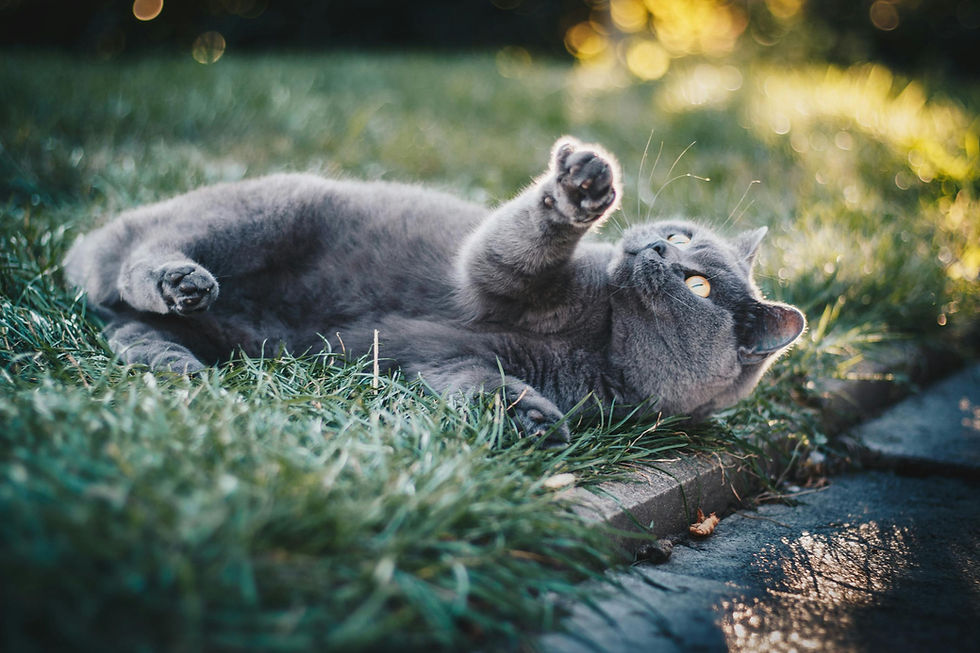Spotting and Managing Anxiety in Cats: Latest Tips and Treatments
- Snappy Tom

- Oct 26, 2024
- 2 min read
Anxiety in cats can be subtle but impacts their well-being just as much as physical health. Cats often exhibit anxiety by hiding, excessive grooming, or acting aggressively, and studies show that 34% of cats scratch inappropriate items such as furniture, doorframes, or carpets, which can be a sign of stress.
Recognizing these signs early can help in managing their anxiety and providing a more comfortable home environment.

Signs Your Cat May Be Anxious
Physical Indicators
An anxious cat may groom excessively, to the point of creating bald spots. They might also have dilated pupils, rapid breathing, or a stiff posture. Some cats may even start eating less or more than usual, affecting their physical health.
Behavioural Changes
Common behavioural signs include hiding, vocalizing more than usual, or becoming less social. They might avoid using the litter box or stay close to it, viewing it as a safe space.
Knowing your cat’s habits makes it easier to notice these changes and act accordingly.
Causes of Anxiety in Cats
Several factors can trigger anxiety in cats, including changes in their environment, new family members (human or pet), or even a different litter type.
Older cats might experience anxiety due to age-related conditions like arthritis or cognitive decline. Recognizing the cause can help you take targeted steps to reduce their stress.
Practical Steps to Manage Cat Anxiety
Create a Calm Environment
Setting up a safe, quiet space with familiar toys, bedding, and scratching posts can help your cat feel secure. Minimizing loud noises, sudden movements, and major household changes can ease their anxiety.
Try Natural Supplements and Diet Adjustments
Diet can play a role in reducing anxiety. High-protein, all-natural foods, like those from Snappy Tom Cat Food, can support a cat’s natural dietary needs, which may contribute to balanced behaviour.
The Snappy Tom Ultimates Premium Cat Food is particularly high in lean, natural protein, offering a taste cats love, which could help in reducing stress-related picky eating or digestive issues.
Maintain a Consistent Routine
Cats thrive on routine, so keeping a regular feeding, playtime, and sleep schedule can provide them with comfort and predictability. Routine play can also burn off excess energy, helping them feel more relaxed.
Professional Help for Severe Anxiety
Consulting a vet can be a good next step if your cat's anxiety doesn't improve. Vets may suggest behavioural therapy or, in some cases, prescribe medication. Treatment is often most effective when anxiety is addressed early, preventing it from becoming a more serious issue.
Choosing the Right Support for Your Cat’s Health
Maintaining your cat’s mental well-being is as important as physical health.
With the right food and routine, you can support your cat in leading a happier, anxiety-free life.
Brands like Snappy Tom offer nutritious, high-protein options that align with a cat’s natural diet, helping them stay fit, strong, and comfortable in their environment.








Comments